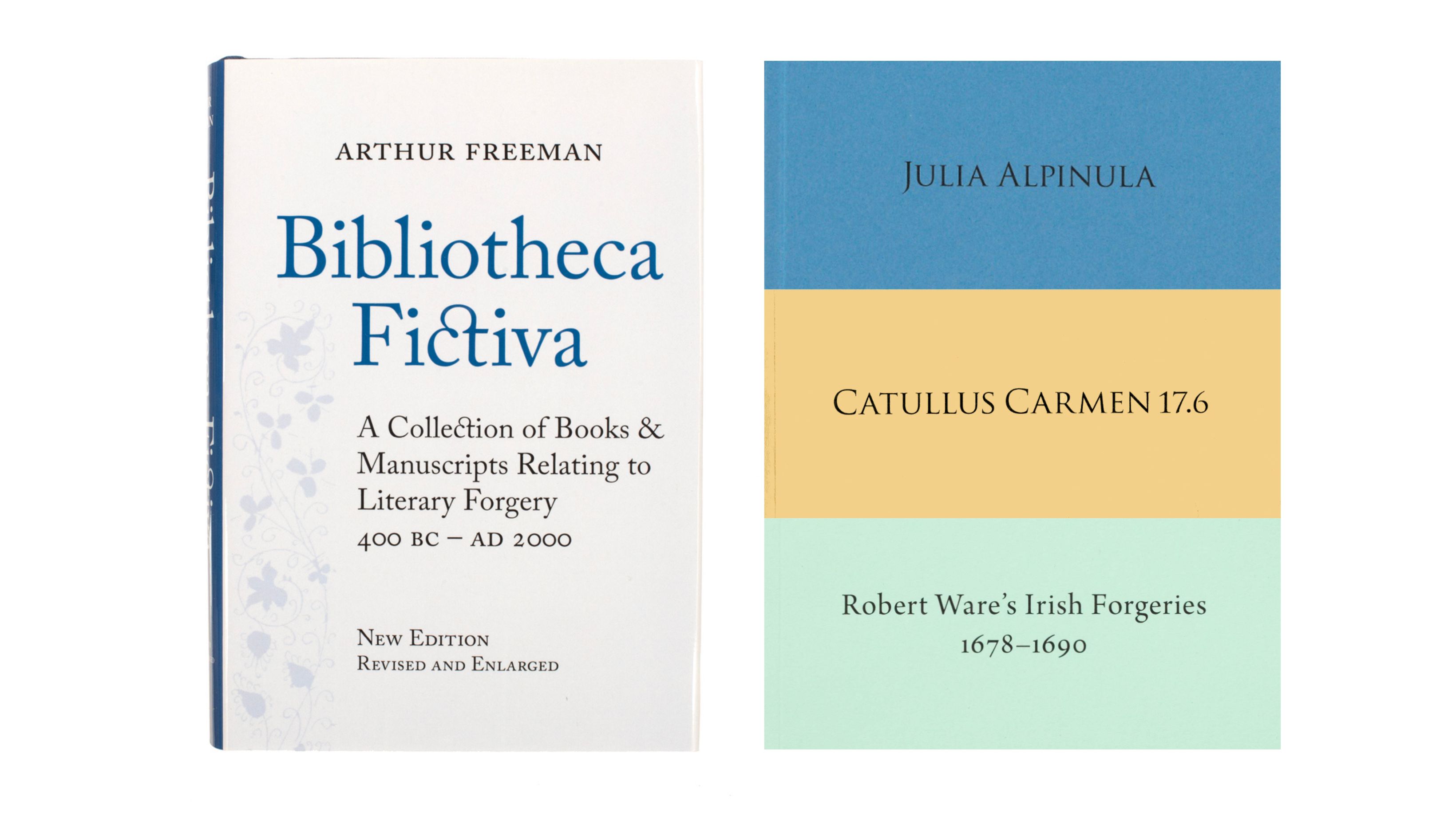EUGENE ARAM, PHILOLOGIST
[FRYER, Michael, editor.]
The Trial and Life of Eugene Aram; several of his Letters and Poems; and his Plan and Specimens of an Anglo-Celtic Lexicon …
Richmond: Printed by and for M. Bell … 1832
Small 8vo. in fours, frontispiece facsimile of a letter in Aram’s hand; a very good copy in smooth brown contemporary calf.
Added to your basket:
The Trial and Life of Eugene Aram; several of his Letters and Poems; and his Plan and Specimens of an Anglo-Celtic Lexicon …
First edition. The unfortunate Yorkshire schoolmaster Eugene Aram, implicated with the shoemaker Daniel Clark in fraud in 1745, and twelve years later accused of Clark’s murder, was convicted and hanged in 1759. While in prison in York, without books and papers, he produced the Plan and Specimens published here (pp. 71-106), proposing to trace Latin and Greek back to Celtic as a single mother tongue.
Publication of the present work was prompted by the success of Edward Bulwer’s best-selling novel of 1832.

